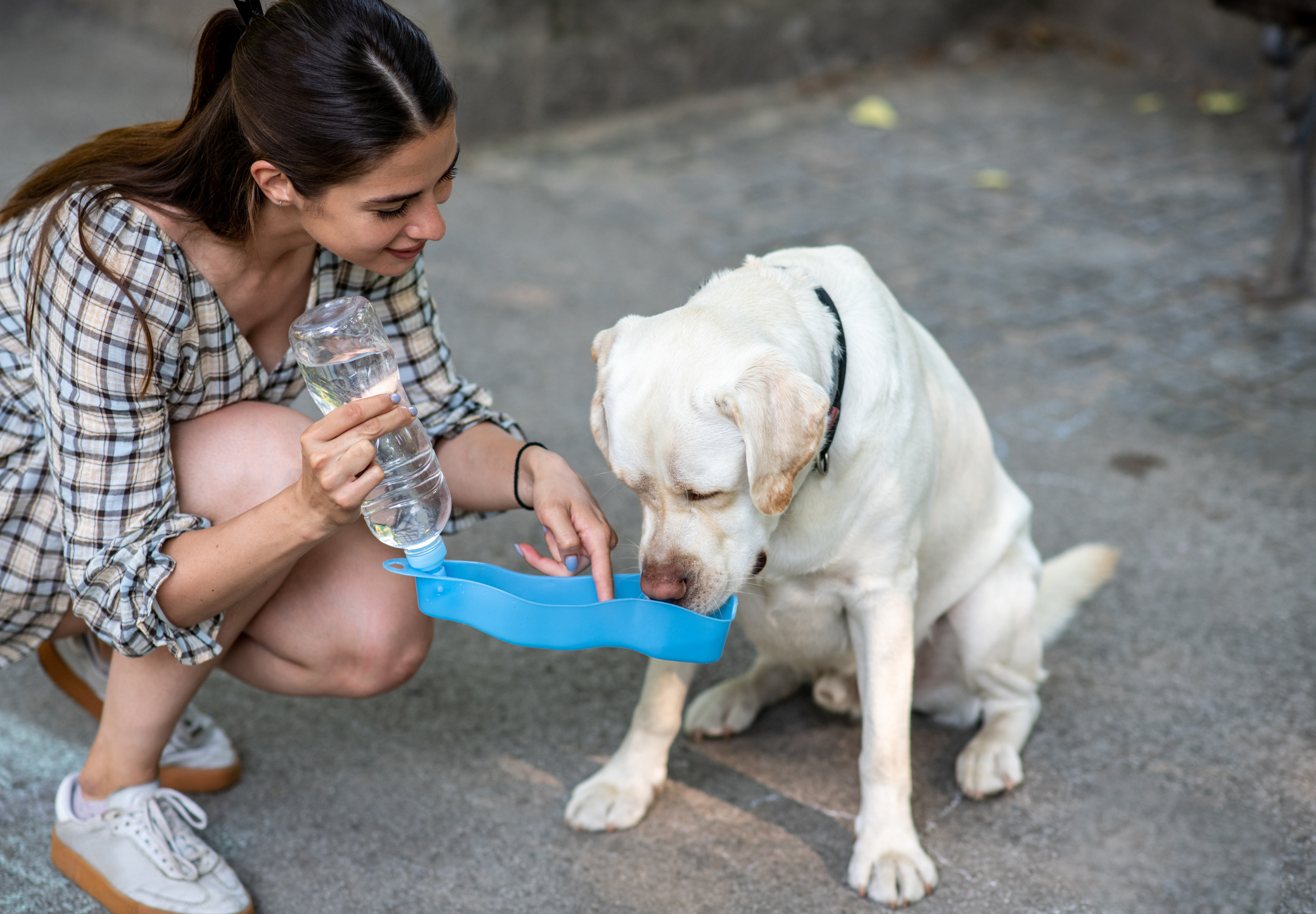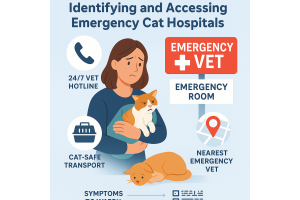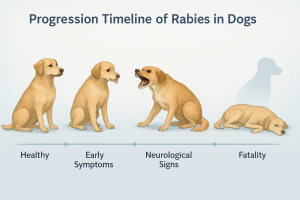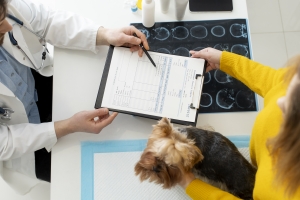Puppy Dehydration: Signs, Prevention, and Treatment for Summer

Summer is a time for outdoor fun and bonding with your puppy, but the warm weather also brings unique challenges—chief among them is keeping your puppy hydrated. Puppies are energetic explorers, which makes them more susceptible to dehydration, especially during hot months. Understanding the causes, symptoms, and prevention methods for dehydration can help you ensure your furry friend stays happy, healthy, and hydrated.
Why Hydration is Vital for Puppies
Water is essential for every living being, and puppies are no exception. In fact, a dog’s body is composed of approximately 80% water. Hydration impacts nearly every bodily function, from regulating body temperature to supporting organ function. Puppies, with their boundless energy and smaller bodies, are especially vulnerable to fluid loss.
Common Causes of Puppy Dehydration
Dehydration occurs when a puppy loses more water than it consumes. While some fluid loss is normal—through panting, urination, and sweating through the paw pads—certain factors can exacerbate the situation:
- Overheating: Puppies are prone to overheating during summer due to their high activity levels and inability to regulate their body temperature as efficiently as humans.
- Illness: Vomiting, diarrhea, or excessive urination caused by conditions like infections or kidney issues can lead to rapid fluid loss.
- Inadequate Water Intake: Puppies can sometimes get distracted by play and forget to drink water, especially in a busy environment.
- Ingestion of Harmful Substances: Certain toxins or substances can cause dehydration as the body tries to eliminate them through vomiting or diarrhea.
Recognizing the Symptoms of Dehydration
It’s essential to recognize the signs of dehydration early to avoid severe health complications. Here are some key symptoms to watch for:
- Tented Skin: Gently pinch your puppy’s skin between your fingers. If it doesn’t snap back quickly, this could indicate dehydration.
- Lethargy: A dehydrated puppy may seem unusually tired, weak, or uninterested in playtime.
- Sunken Eyes: Dehydration can cause the eyes to appear dull and sunken.
- Loss of Appetite: A lack of interest in food may be an early warning sign.
- Excessive Panting: While panting is normal for cooling down, prolonged or excessive panting could be a red flag.
- Dry Nose or Gums: Check your puppy’s gums for moisture; dryness is often a sign of dehydration.
- Depression: Your puppy might seem withdrawn or less interactive than usual.
What to Do if Your Puppy is Dehydrated
If you suspect mild dehydration, take immediate steps to replenish their fluids. However, severe dehydration or accompanying symptoms like vomiting and diarrhea require veterinary care.
For Mild Dehydration:
- Offer Fresh Water: Encourage your puppy to drink cool, clean water. Place the water bowl in a shaded or calm area to make it more appealing.
- Electrolyte Solutions: If your puppy isn’t interested in plain water, ask your veterinarian about safe electrolyte solutions to restore hydration.
- Cool Down Slowly: If overheating is a concern, gently cool your puppy by wiping them with a damp cloth or using a fan. Avoid sudden temperature changes.
For Severe Dehydration:
Seek immediate veterinary attention. Severe dehydration often indicates an underlying medical issue, and professional treatment, such as intravenous fluids, may be necessary.
Preventing Dehydration in Puppies
Prevention is the best approach to keeping your puppy hydrated and healthy during the summer. Here are some practical tips:
1. Provide Constant Access to Water
- Ensure your puppy has access to clean, fresh water at all times.
- Monitor their water bowl frequently and refill it as needed, especially during warm weather or after playtime.
2. Create a Cool Environment
- Keep your puppy indoors during the hottest parts of the day.
- Provide shaded areas in your yard or outdoor spaces where they can rest.
- Use cooling mats or fans to regulate their body temperature.
4. Prevent Overexertion
Limit intense play or exercise during peak heat hours. Schedule walks and outdoor activities during cooler parts of the day, such as early mornings or evenings.
5. Clean Water and Food Bowls Regularly
Bacteria can accumulate in water bowls, potentially causing gastrointestinal issues. Wash and sanitize their bowls daily to ensure they stay healthy.
6. Avoid Toilet Water
While puppies may find the toilet bowl intriguing, it’s not a safe source of hydration. Keep the lid closed and discourage this behavior.
Hydration-Friendly Summer Activities
Keeping your puppy hydrated doesn’t have to be a chore—incorporate fun, water-based activities to make hydration a natural part of their routine:
- Splash Pools: Let your puppy cool off and play in a shallow kiddie pool.
- Frozen Treats: Create DIY frozen snacks using water, low-sodium broth, or pureed fruit.
- Interactive Water Toys: Introduce water fountains or toys that encourage drinking and play.
Understanding Heat Stroke vs. Dehydration
While dehydration and heat stroke are closely related, they are not the same. Heat stroke occurs when a dog’s body temperature rises dangerously high, often leading to dehydration as a secondary effect. Symptoms of heat stroke include excessive drooling, vomiting, rapid heart rate, and collapse.
If you suspect your puppy is experiencing heat stroke, take immediate steps to cool them down and contact your veterinarian.
The Role of Diet in Hydration
Proper nutrition also plays a role in maintaining hydration levels. High-quality puppy food with balanced moisture content can help prevent dehydration. Wet food options or adding a small amount of water to dry kibble can also increase your puppy’s fluid intake.
When to See a Veterinarian
Dehydration can be a sign of underlying health issues, such as kidney disease or gastrointestinal infections. Seek veterinary attention if:
- Your puppy refuses to drink water or eat for an extended period.
- Symptoms like vomiting, diarrhea, or lethargy persist.
- Their condition worsens despite your efforts to hydrate them.
Final Thoughts
Keeping your puppy hydrated during the summer is essential for their health and happiness. By understanding the causes, symptoms, and prevention methods, you can ensure they remain safe and comfortable even in the hottest weather.
Remember, hydration is more than just filling a water bowl—it’s about creating an environment and routine that supports your puppy’s well-being. With a little care and attention, you and your puppy can enjoy a summer full of fun, play, and plenty of tail wags.






